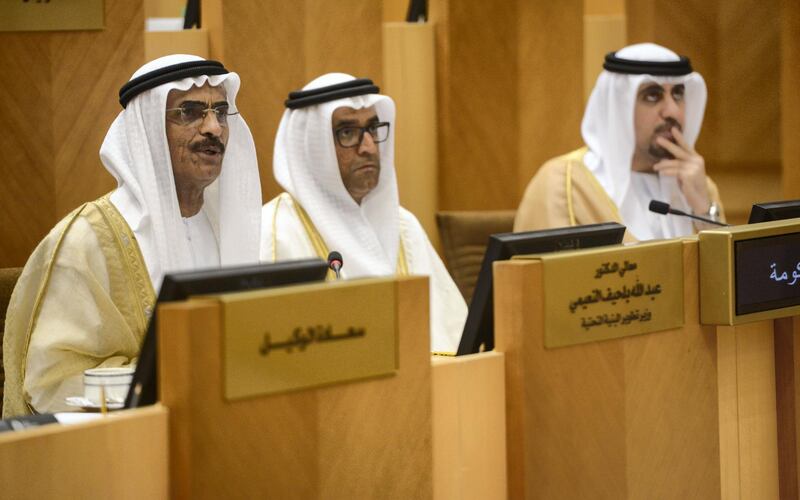The Masafi road, which has become known as the "road of death’ due to the high number of accidents, will be expanded or turned into an overpass, the Federal National Council heard on Wednesday.
The Ministry of Infrastructure also announced plans to address the lack of facilities, pit stops and emergency stations on the recently renamed Shaikh Khalifa Bin Zayed Road, the UAE’s longest highway that connects the country with Saudi Arabia, previously known as Ghuwaifat.
FNC member Abdullah Al Mehrezi named a number of roads in the northern emirates that have been suffering from a lack of attention for decades.
El Gouna road, which passes through Masafi in Ras Al Khaimah up to the Masafi roundabout in Fujairah, has witnessed countless accidents over the decades after it was limited to one lane in each direction.
Dr Al Nuaimi said the Ministry is currently studying possible solutions and are looking to either expand it to include two lanes, or replace it with an overpass. He said the "project will see the light of day soon”.
Minister Dr Abdullah Al Nuaimi said road casualties were falling; however, Member Naama Al Sharhan voiced her concerns over the lack of emergency passageways on roads: “I have seen many with my own eyes bleed to death until the ambulance could reach them.”
“And when the ambulance passes through, it bumps [into other cars] right and left. I have personally faced this some years ago – my car crashed because there was no way out.
“There was a horrific accident recently where a family in Ras Al Khaimah lost two children because the ambulance was too late.”
“Today, where are the passageways for emergency helicopters and ambulances?”
“[Members of the public] are not allowed to provide first aid, so this person who is bleeding to death, how will we bring the ambulance to them? Why does the ambulance have to fight to reach the victim?”
Dr Al Nuaimi said the Ministry has made an agreement with the Ministry of interior to establish a joint control room with the traffic department in the southern-central region. “This center will receive all the information and provide emergency services,” he said.
“We also agreed to establish parking areas for ambulances and helicopters and some are ready to be implemented ... the required expenses have been allocated from the 2018 budget.”
Mr Al Mehrezi also said there are a number of sand roads that have not yet been developed and are therefore preventing locals from reaching their farms. In some cases, farmers have to cross a distance of 50 kilometres to reach a point that is only 15km away.
“Rural roads should also be given attention,” he said.
FNC member Hamad bin Kardous Al Ameri praised the Ghuwaifat highway project, but said it still "lacks any pit stops or emergency spots".
"One who will travel from here to Saudi Arabia suffers from many things and if Adnoc had not added a few stations there it could have been a catastrophe.
“We know the nature of this area – it is all desert.
______________
Read more:
VAT inspectors scanning hundreds of products to catch out retailers that 'manipulate' prices
______________
“We would have hoped that before executing any project, the ministry and all the concerned parties would consider these issues: where would an ambulance or emergency chopper or Civil Defence enter from?
“Why were these things not planned in advance?” he said.
Dr Al Nuaimi assured the council that such pivotal highways have been the focus of the latest government retreat and a 100-day period has been given to provide a comprehensive plan for all of the country’s roads.







